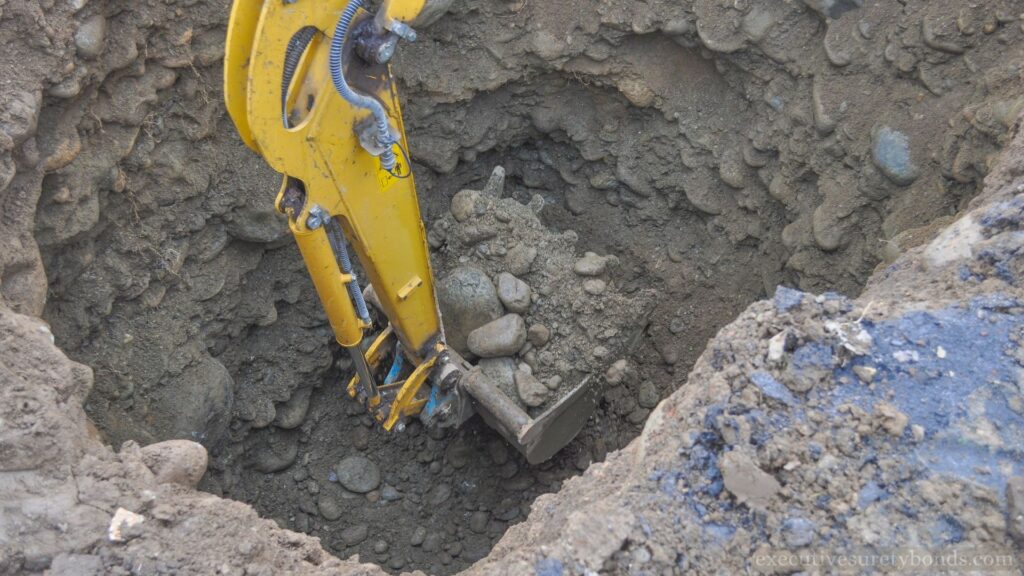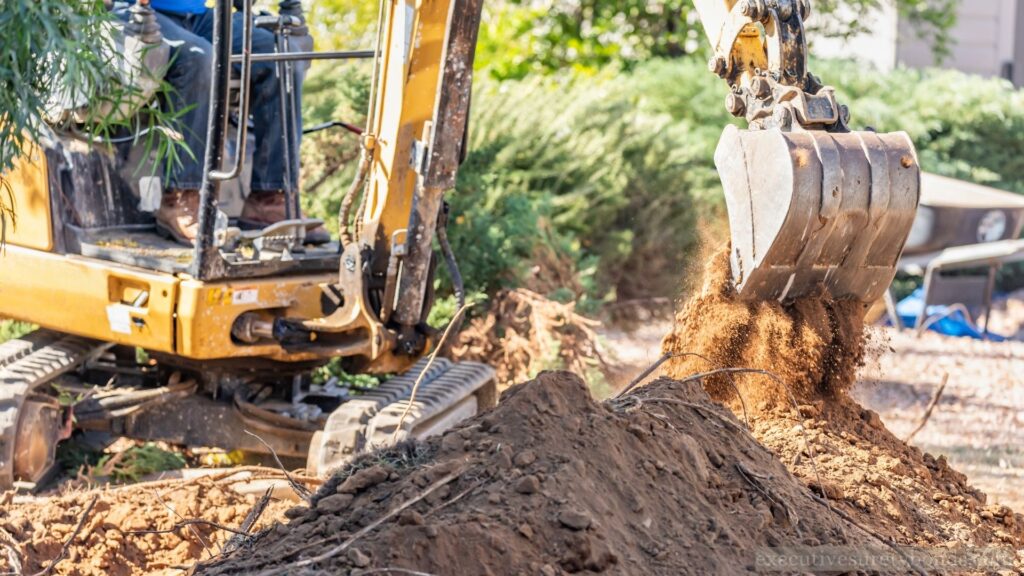Get An Instant Quote on Kansas Gas Service Utility Deposit Bond Now
Introduction
In the bustling city of Wichita, where roads and sidewalks are the arteries of transportation, the Wichita, KS-Excavation, Cutting Sidewalks or Pavement ($5,000) Bond plays a crucial role in ensuring the safe and efficient movement of people and goods. Excavation and pavement cutting activities are essential for infrastructure maintenance and development, but they must be executed with precision and accountability. To safeguard public safety, preserve the integrity of city infrastructure, and uphold regulatory compliance, the City of Wichita requires the Excavation, Cutting Sidewalks or Pavement Bond, valued at $5,000. This bond is not just a legal necessity; it is a testament to the commitment of contractors to responsible construction practices. In this article, we will delve into the significance of the Wichita Excavation, Cutting Sidewalks or Pavement Bond, its purpose, and its impact on the construction and infrastructure development within the city.
The Urban Tapestry of Wichita
Wichita is a city where urban life thrives, and its streets and sidewalks are the canvases upon which its vibrant community life unfolds. From bustling downtown corridors to quiet suburban streets, well-maintained infrastructure is essential for the city’s functionality.
The Wichita Excavation, Cutting Sidewalks or Pavement Bond
At the core of responsible construction practices in Wichita lies the Excavation, Cutting Sidewalks or Pavement Bond. This bond is more than a financial obligation; it is a symbol of the dedication to quality and safety that contractors bring to their work.
Understanding the Mechanics of the Bond
When a contractor in Wichita plans to engage in excavation or pavement cutting activities on public property, they are typically required to secure the Excavation, Cutting Sidewalks or Pavement Bond. This bond establishes a legally binding agreement between the contractor, the city, and a surety company. The surety company acts as a financial guarantor, ensuring that the contractor will conduct their work in compliance with city regulations, maintain ethical construction standards, and fulfill their financial obligations, including the repair of any damages caused during excavation or pavement cutting.
Implications for Contractors
For contractors in Wichita, obtaining the Excavation, Cutting Sidewalks or Pavement Bond signifies a commitment to quality, regulatory compliance, and responsible construction practices. It ensures that they adhere to city regulations, conduct their work with integrity, and contribute positively to the safety and functionality of Wichita’s infrastructure.
Moreover, the bond fosters trust and confidence between city authorities and contractors. It signifies that contractors are financially responsible and dedicated to upholding the highest standards of ethical conduct and compliance with construction regulations.
Building the Future, Responsibly and Safely
The primary purpose of the Wichita Excavation, Cutting Sidewalks or Pavement Bond is to build the future responsibly and safely. By guaranteeing that contractors operate ethically, follow city regulations, and prioritize the quality and safety of their construction work, the bond plays a pivotal role in safeguarding the integrity of Wichita’s infrastructure. It contributes to the trust that residents and businesses place in construction professionals and supports the city’s growth and development.
Conclusion
In the urban landscape of Wichita, the Excavation, Cutting Sidewalks or Pavement Bond is not just a legal requirement; it’s a symbol of dedication to quality and safety. Contractors, city authorities, residents, and businesses all benefit from the protections and assurances offered by this bond. By enforcing compliance with construction regulations and promoting responsible construction practices, the bond plays a crucial role in ensuring that Wichita remains a place where infrastructure thrives, celebrating the craftsmanship and responsibility of contractors while prioritizing the safety and functionality of the city’s roads and sidewalks.
Frequently Asked Questions
Are There Any Specific Regulations or Guidelines for the Type of Equipment or Machinery That Contractors Must Use When Performing Excavation or Pavement Cutting Under This Bond?
While the Wichita, KS-Excavation, Cutting Sidewalks or Pavement Bond primarily focuses on financial responsibility and regulatory compliance, it does not prescribe specific equipment or machinery requirements for contractors. However, contractors are expected to adhere to city regulations and industry standards related to the safe and proper use of equipment during excavation or pavement cutting activities. Contractors should consult local ordinances and safety guidelines to ensure they are using appropriate equipment for their projects.
Is the $5,000 Bond Amount Sufficient to Cover Potential Damages That May Occur During Excavation or Pavement Cutting Projects?
The $5,000 bond amount serves as a financial guarantee to cover damages or repairs resulting from excavation or pavement cutting activities conducted by contractors. While the bond amount is fixed at $5,000, it is important for contractors to exercise due diligence and take appropriate precautions to minimize the risk of damages during their projects. If damages exceed the bond amount, contractors may be held financially responsible for the additional costs.
Does the Wichita Excavation, Cutting Sidewalks or Pavement Bond Apply to Residential Property Owners Who Plan to Make Personal Excavations or Pavement Cuts on Their Property?
No, the Wichita Excavation, Cutting Sidewalks or Pavement Bond typically applies to contractors or businesses that engage in excavation or pavement cutting activities on public property or within the public right-of-way. It is not typically required for residential property owners who plan to make personal excavations or pavement cuts on their own property, as long as the work does not extend beyond their property boundaries into public areas. However, property owners should still check with local authorities to confirm any specific regulations or permits that may apply to their projects.


